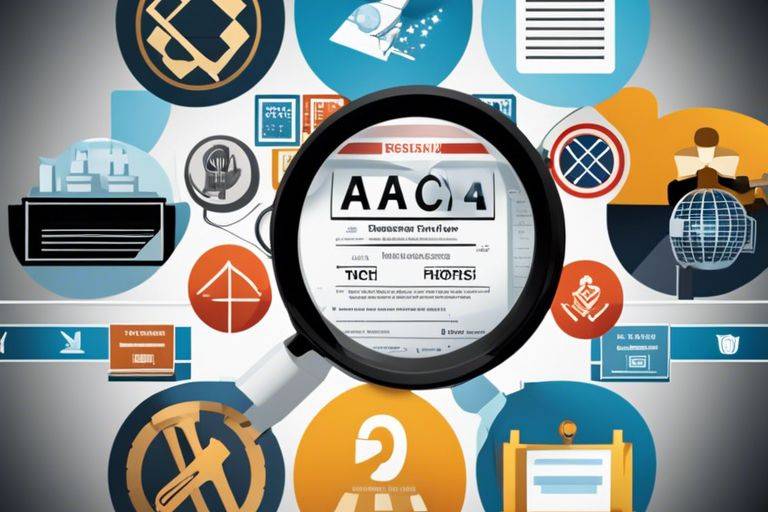- May 24, 2024
- Posted by: cigdubaiae
- Category: Trade License

Key Factors To Consider When Choosing The Right Trade License For Your Business
Overwhelmed by the multitude of trade license options available for your business? Choosing the right trade license is a critical decision that can have far-reaching implications on the success of your venture. By understanding key factors such as the nature of your business, industry regulations, location, and scalability, you can make an informed choice that sets your business up for success. This blog post will investigate into the important considerations you need to keep in mind when navigating the world of trade licenses, empowering you to make the best decision for your business.
Key Takeaways:
- Understand your business activities: Identifying the specific activities your business will be engaged in is crucial to determine the type of trade license required.
- Research licensing requirements: Conduct thorough research on the regulations and requirements set by the local authorities to ensure compliance with all necessary permits.
- Consider future scalability: Choose a trade license that accommodates your current business needs while also allowing room for growth and expansion in the future.
Understanding Trade Licenses
It is crucial for any business owner to understand the ins and outs of trade licenses before entering into a new venture. From the different types available to the legal implications they carry, a trade license is a fundamental requirement for conducting business legally.
Definition and Types of Trade Licenses
Types of trade licenses can vary depending on the nature of your business and its location. Common types include professional licenses, commercial licenses, and industrial licenses. Each type corresponds to a specific sector or activity, so it is imperative to identify which one suits your business best.
Importantly, The information should be broken down into
| Professional Licenses | Commercial Licenses |
| Industrial Licenses | Other Specialized Licenses |
Assume that choosing the right type of trade license is crucial for the smooth operation of your business and for compliance with local regulations.
The Legal Implications of Trade Licensing
Trade licensing goes hand in hand with legal responsibilities that business owners must abide by. Obtaining the correct trade license ensures that your business is operating within the law and complies with all regulations and standards set forth by local authorities.
Another crucial aspect to consider is that operating without a valid trade license can lead to hefty fines, legal actions, and even the closure of your business. It is imperative to stay informed about the legal implications surrounding trade licensing to protect your business and its reputation.
Factors Influencing Trade License Choice
Some key factors need to be considered when choosing the right trade license for your business. These factors can significantly impact your operations and legal standing, making it important to make an informed decision.
The Nature of Your Business
Influencing your choice of trade license is the nature of your business. Certain industries may require specific licenses to operate legally, such as healthcare, construction, or food services. Understanding the nature of your business activities will help you determine the appropriate type of trade license needed.
Location and Jurisdictional Requirements
Your location plays a crucial role in the trade license selection process. Different jurisdictions have varying requirements and regulations for business licenses. It is important to research and understand the local laws and regulations governing trade licenses in your area to ensure compliance.
Nature of activities – Ensure that your business activities align with the regulations and restrictions specific to your location. Failure to comply with jurisdictional requirements could result in fines or even the suspension of your business operations.
Financial Considerations
Location can also impact the financial considerations associated with obtaining a trade license. Costs, fees, and renewal requirements can vary based on where your business is located. It is important to budget for these expenses and factor them into your business plan to avoid any financial surprises.
Another important consideration is the potential return on investment related to obtaining the necessary trade license. Investing in the right license for your business can lead to growth opportunities and increased credibility within your industry.
The Application Process
Documentation and Eligibility
For a successful trade license application, it is imperative to have all the necessary documentation in order. This typically includes proof of address, identification documents, business registration certificates, and any other specific papers required by the governing authority. Meeting the eligibility criteria, such as owning a valid business entity and meeting any industry-specific norms, is crucial for a smooth application process.
Timelines and Processing
On submitting a trade license application, the processing time can vary depending on the jurisdiction and complexity of the business. Generally, it can take a few weeks to several months for the approval process to be completed. It is advisable to be prepared for potential delays and plan accordingly to avoid any disruptions to your business operations.
A critical aspect to note regarding timelines and processing is to ensure thoroughness in the initial application submission. Any missing or inaccurate information can lead to delays in approval or even rejection. It’s imperative to double-check all documents and details before submitting to expedite the process.
Maintaining Compliance
Renewal and Updates of Trade Licenses
Despite obtaining the necessary trade license for your business, the journey doesn’t end there. Any business owner needs to stay vigilant about the renewal and updates of their trade licenses to ensure ongoing compliance with regulations. Renewal periods vary depending on the type of business and location, so it’s vital to keep track of deadlines to avoid any disruptions in operations.
Penalties for Non-compliance
Noncompliance with trade license regulations can have severe consequences for your business. This can include hefty fines, suspension of operations, or even legal action. It is crucial to understand the penalties for non-compliance and take proactive measures to avoid them. Ignorance of the law is not an excuse, so staying informed and compliant is key to the success and longevity of your business.
To wrap up
With this in mind, choosing the right trade license for your business is a critical decision that can impact your operations and success. It is necessary to consider factors such as the nature of your business, location, regulatory requirements, and long-term goals when making this choice. By conducting thorough research, seeking expert advice, and understanding the implications of each license type, you can ensure that you obtain the most suitable license for your specific needs. Remember that compliance with licensing regulations is crucial for the sustainability and growth of your business, so take the time to make an informed decision that aligns with your objectives.


